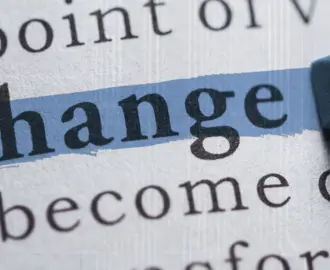MIT Kuo Sharper Center for Prosperity and Entrepreneurship
Entrepreneurship
Making the Most of What They Have: Entrepreneurs Pivot to Meet Pandemic Demands
In the devastation and disruption of the COVID-19 pandemic — which has claimed more than two million lives worldwide and counting — some entrepreneurs saw glimmers of new opportunity. They weren’t just motivated to grow their businesses; they could help in a dire situation.
Like fashion designer Christian Siriano, who turned his couture studio into a mask factory and donated thousands of masks to front-line workers, entrepreneurs around the world redeployed resources, at least temporarily. By pivoting to meet urgent needs, these entrepreneurs may have strengthened their businesses for the long term as well.
ARTISANAL PROTECTIVE EQUIPMENT
Sasibai Kimis had already pivoted her career when she left the finance industry to start Earth Heir, a Malaysian social enterprise that sells heritage crafts produced by local and refugee artisans. When COVID-19 arrived in Malaysia suddenly, Kimis took another leap, this time in response to the crisis.
Even before Malaysia enacted its swift lockdown in mid-March 2020, face masks had become scarce and subject to price gouging if they were available at all. As Kimis and her team were grappling with how to protect themselves, they were asked to produce cloth masks for an organization in search of a manufacturing partner. Earth Heir tapped a group of Afghan refugee craftsmen to fulfill the order, delivering on the market need while providing income for a group with little or no financial support during the pandemic.
Kimis faced a more difficult choice when another company approached Earth Heir about producing medical-grade personal protective equipment (PPE) which required special materials to be sourced in large quantities. Optimistically assuming the lockdown would be temporary, Kimis said the capital investment felt like a huge gamble. “We’re putting a lot of our money to buy this fabric, and if it doesn’t sell or we don’t raise donations, what are we going to do?”
They moved forward nonetheless, recognizing growing demand for the products and finding immense generosity in early responses from donors.
Though Earth Heir couldn’t compete with large factories, they found themselves with a competitive advantage as international borders shut down: they were on the ground and ready to work. Raw materials from Malaysia couldn’t easily reach overseas factories but Earth Heir was open for business.
TRACING THE SPREAD
Another entrepreneur who saw a pivot opportunity was Dr. Anatole Menon-Johansson who had been following the novel coronavirus since early January 2020. An MIT Legatum Fellow and physician overseeing a busy sexual and reproductive health clinic in the United Kingdom, he knew contact tracing would be important in containing the virus. He also had experience — and a platform — that could help.
Menon-Johansson had built SXT, a contact tracing solution for the sensitive challenge of informing sexual partners of potential exposure to sexually transmitted infections (STI). In the clinic, screening hundreds of people may turn up one case. With SXT, three contacts can lead to one case of gonorrhea and five tests can find one HIV diagnosis.
To find “the right patients” — those most likely to be infected — using technology requires balancing privacy concerns with public health objectives. SXT stores just enough data to notify contacts via text or email and connect contacts to testing and treatment, and then disposes of personal information.
Menon-Johansson saw parallels with COVID-19. “If you bring an infection to a community that kills someone’s grandmother, it’s a big deal,” he said. “There’s shame, stigma, embarrassment…We need to acknowledge that.”
The same needs — for privacy, efficiency, and information about testing and treatment — would so clearly be needed to stem COVID-19 spread that Menon-Johansson accelerated development plans and began coding a new version of the platform.
While some governments and institutions wanted to develop their own tools, Menon-Johansson was able to build on his existing product. Contact Virus Tracker (CVT) is now in use at King’s College London and Menon-Johansson hopes to launch a pilot soon at a U.S. university.
“It’s not rocket science, this stuff,” Menon-Johansson said. “It’s actually the implementation piece [that’s] hard.”
This entrepreneur was able to build on years of experience and lessons learned in another context.
THE CHALLENGE OF PIVOTING
Not every entrepreneur can pivot in a crisis, and not every entrepreneur wants to.
According to Ted Levinson, founder and CEO of Beneficial Returns, the same factors that make many entrepreneurs effective may limit their appetite for pivoting, and many face dual-edged swords during difficult times.
“On the one hand, these are incredibly scrappy businesses because they have to be,” Levinson said. Already doing a lot with very little, these entrepreneurs may be well positioned to capitalize on opportunities created under difficult conditions. “On the other hand, these are so poorly resourced organizations…it doesn’t take much to push them out of business.”
In particular, Levinson questions how many social entrepreneurs specifically would choose to pivot even if they could. Many are so passionate about their mission they may not be drawn to other markets just to make money.
“If there’s a pivot, it’ll be to a new financial model and a new delivery of services model,” Levinson said. “It won’t be to a new industry.”
This kind of passion is not limited to social entrepreneurs. Many entrepreneurs across sectors can be single-mindedly focused on achieving their mission. But pivoting may be essential for survival or strategically valuable for growth. Kimis’ and Menon-Johannson’s experiences illustrate how a crisis can spur entrepreneurs to steer their ventures in new directions.
A crisis can reset the rules. When the pandemic threatened global supply chains, Earth Heir filled a need that much larger firms could not. Suddenly, the craft-oriented enterprise had unexpected advantages.
“The whole COVID-19 situation has really brought into a huge realization for a lot of countries that you need to balance local resiliency with globalization,” Kimis said.
Gregory Rockson, co-founder and CEO of mPharma, described his firsthand experience with supply chain disruptions in an Inclusive Innovation Exchange interview. Rockson said governments can foster local resilience by supporting local manufacturing sectors, which in turn can drive investment and buffer these countries from global shocks.
“African governments could use the power of their purse, no matter how small it is, to provide volume guarantees to local manufacturers, and actually prioritize a ‘buy local’ strategy and use their procurement budgets to support that,” Rockson said.
A crisis can reframe a venture’s relevance. “Sexually transmitted infections are diagnosed every second on the planet,” Menon-Johannson said. Though ubiquitous, STIs are often taboo. COVID-19 brought the concept of contact tracing into the mainstream consciousness. Menon-Johansson’s ability to adapt SXT to meet COVID-19 conditions has helped shine a light back onto his core mission.
Human factors may transcend specific concepts and serve as a bridge. Menon-Johansson used technology to make manual processes more efficient, not to replace human intervention altogether. He knew technology alone wouldn’t work in COVID-19 contact tracing if people didn’t have access to the follow-up services they’d need or if enforcement mechanisms were not in place. Low adoption of tech-only tools support his approach.
Kimis was able to respond to market opportunities because she had people willing to do new kinds of work, and donors eager to help. Her original business model alone may not have worked in new circumstances. Without factoring human needs and interests, she may have missed out on growth opportunities.
Starting and scaling a venture is challenging in the best of times, but surviving during the pandemic has been especially difficult. Whether a venture can or should pivot depends on the business and its market context. Entrepreneurs who can connect their core mission to changing conditions may be stronger and more diversified when the crisis abates.
The best entrepreneurs don’t waste a crisis. They see opportunity to solve new or adjacent problems and go after it. Their ingenuity to survive near-term difficulties can create long-term advantage.
Related Posts



